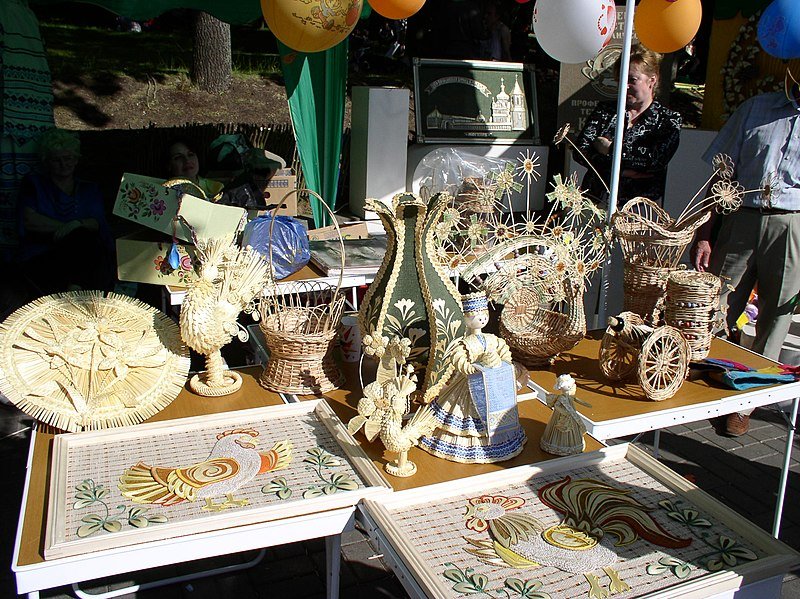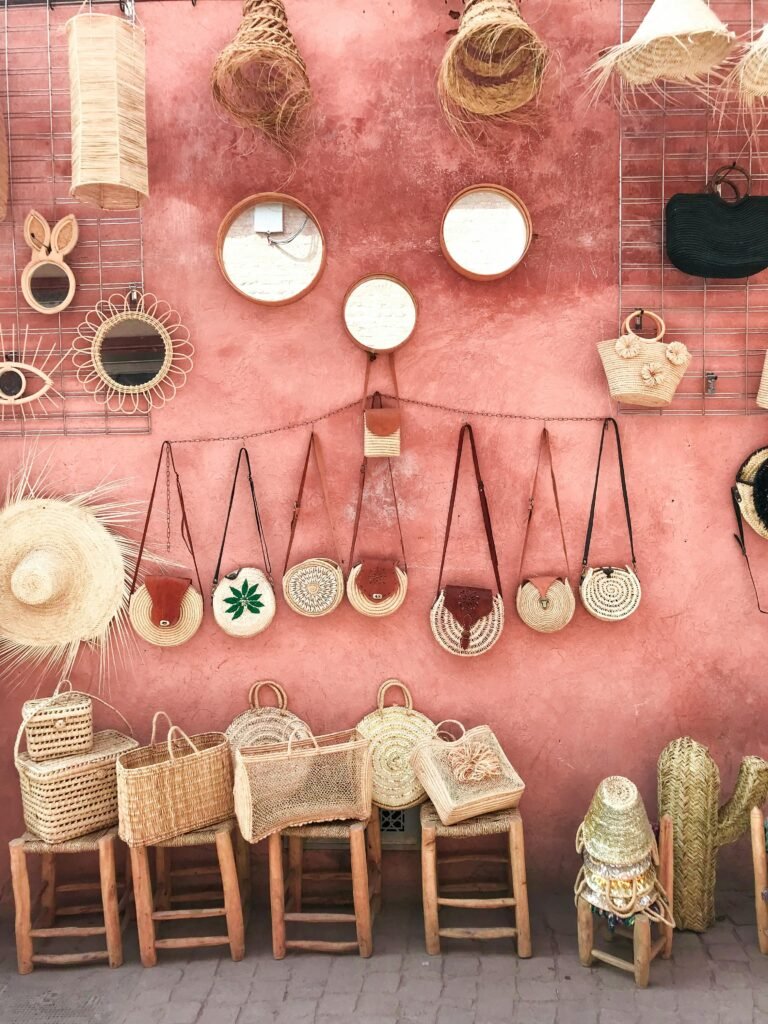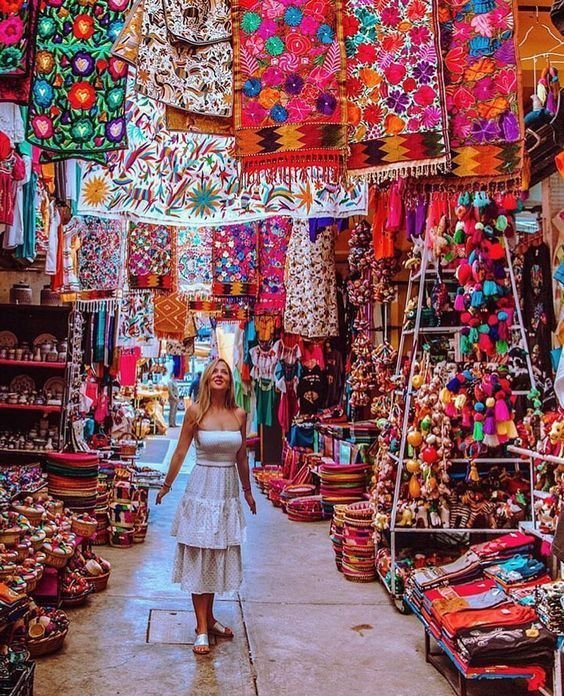It’s hard to get started with a craft business, whether you want to establish a real brand or just sell a few items as a hobby. In our guide, we explain how you can start to make money selling handmade goods and where you can sell crafts
First off, let’s chat a little bit about the legalities of making and selling handmade crafts. We know that a lot of people worry about selling their goods legally and want to ensure that they follow all of the regulations necessary to their craft.
In a basic sense, yes, you are legally allowed to sell your handmade crafts provided that you follow any guidelines relevant to how you are creating and selling said items. We have a dedicated blog article on how to sell crafts legally, so you can look into what you need to know before you start selling.
Once you understand the legalities, you may be wondering how you get started with creating your own crafting business and brand before you can even consider selling goods. Check out our ultimate guide to starting a craft business for help and establish your brand!
Now you’re ready to sell, where exactly do you sell your handmade crafts.
WHERE CAN I SELL MY HANDMADE CRAFTS ONLINE?
If you’re looking to sell your handmade crafts online, there are a vast number of websites that help small businesses sell their goods with relatively little effort. These sites each have their advantages and disadvantages, so let’s look into them a little further.
WHERE CAN I SELL HANDMADE CRAFTS IN PERSON?
You’ve mastered selling online and now want to spend some time promoting and selling your crafts in person. Maybe you just prefer face-to-face selling. Either way, you’re in luck. There are plenty of craft fairs, shows, events and exhibitions going ahead throughout the UK every year.
Craft fairs are a great way to promote your handmade crafts, meet other crafters, get inspired and sell lots of your products! Craft fairs can be seasonal (think Easter and Christmas), specific to a craft (jewellery fairs) and themed (vintage craft fairs are hugely popular).
Most craft fairs will be organized by an events company who allow you to register online to sell at their fair. You’ll more than likely pay a flat fee and will be allocated a stall to set your shop up on.
One hugely important factor to keep in mind however, is that most organisers will require proof of insurance before they’ll allow you to sell. Luckily, our craft fair insurance is fully comprehensive, allowing you to be fully covered for all crafting events in the UK. Your shop will be fully protected should you experience any issues with customers, damages to your goods or problems with selling at an event.

WHERE TO SELL HANDMADE CRAFTS LOCALLY
This is not a guaranteed way to sell handmade crafts, but some crafters are able to sell a selection of their products within a local shop. Keep an eye out for (usually independent) shops that are advertising selling spaces, or chat to your local shop owners and see if they would be interested in working with you.
Craft Fairs
You also need to know the kind of craft permitted in your preferred craft fair. Are they looking for crafters who specialize in handmade jewelry, personalized tumblers, DIY canvas art, or general arts? Do your homework to know what’s expected of you.
After choosing the right craft fair, you need to come up with a budget and properly price your products. Furthermore, you need to put in the effort to attractively display your items. And you need to have great customer service.
One sure way of generating sales during craft fairs is by promoting your booth and following up with your customers. You also need to be approachable and friendly with your customers.
Farmers Markets
Farmers’ markets tend to generate lots of foot traffic, and there are instances where you get to have a spot all year round. Crafters who are looking to sell handmade crafts locally will benefit from this option. One sure benefit of using farmers’ markets is their booth fees and schedule. You can sell in the same spot week after week and that makes it easy for your target customers to find you. That is, customers will know where to go if they’re looking to get your product.
On the flip side, the outdoor farmers’ market is largely dependent on the weather. Granted, most farmers’ markets would run on both rainy and sunny days. However, they will likely be shut down during extreme weather conditions.
Depending on your location, you could find farmers’ markets that run during weekdays in the evenings. That will make a good choice for crafters who are always busy with family and kids during weekends.
Holiday/Festival Marketplace
If you plan on doing a single craft show in a year, then going to the holiday (or festival) markets should be your best shot doing it right could make all the difference.
Holiday markets generate the most sales in the year. After all, enthusiastic shoppers are mostly sold to. Holiday markets can span over many days, and that allows you to sell out your craft stock.
Before settling on a holiday market, you need to ascertain that your handmade items and crafts fit into the overall theme of the event. Your items need to be displayed in a way that appeals to your customers. Also, you need to politely guide your customers when they come to buy your crafts.

Art Fairs
Art Fairs and Shows are great ways to network and expose your craft business to a large audience. During art shows and fairs, you will network with other professionals in your niche, and such networks could easily turn into more business and professional opportunities down the line.
However, you need to research and identify the right shows and fairs for your business. After that, you will have to apply early and come up with a strong presentation. Be professional when interacting with customers, other crafters, and the art fair staff.
Trade Expos
Trade shows are usually big gatherings, and they can have both small and big companies come for their exhibitions. There’s the possibility of seeing shop owners who come to these expos to restock their stores.
If done right, you will get a good booth where you display your plethora of handmade crafts. Trade shows are designed with themes, and there are instances where these themes are somewhat specific. For instance, there are trade shows for home & garden, bridal, gift, and women.
A simple Google search will help you figure out the various trade shows in your city. And if the theme aligns with what you want to sell, go for it.
Craft Boutiques
Your handmade items can be part of the collections found in your craft boutiques. You could offer additional services like crafting personalized items for customers who request such.
You need to come up with a compelling product line and pitch your items to the local craft boutiques around you. If you’ll not be around to sell your items yourself, you could consider offering a consignment agreement to the boutiques. This way, they sell the items for an agreed commission. Furthermore, you need to promote your items using channels like social media platforms.

Artisan Shops
A typical artisan shop is stocked with a variety of handcrafted items and your items could be part of such a diverse collection. Selling at artisan shops allows you to get your items in front of premium paying customers.
To get the most out of your sales process, you will have to research the shop and figure out if your items are a good fit for their customer base. Appealingly present your items, and be prepared to verbally sell your items.
Gift Shops
Gift shops provide an avenue for selling any kind of handmade item. Whether you want to sell canvas, tumblers, or personalized T-shirts, there’s a space for you. Go to the local directorate to see the list of gift shops around you.
You will have to speak with the manager of your preferred gift shop to figure out the requirements and guidelines of the shop.
Coffee Shops
Coffee shops are designed with areas for displaying teapots, tumblers, and other similar products. Large brands like Starbucks will likely display branded items, but you can make use of regular coffee shops for the sale of your handmade craft.
Coffee shops are the best fit for crafters who specialize in the making of personalized tumblers, and other coffee-related products. You could sell your coffee-related products to people who visit the coffee shop and the owners of the shop. After all, they will need personalized coffee related products like aprons, coffee mugs, and so on.

Local Businesses
Think of local businesses you may partner with to promote your homemade crafts. Crafters who make personalized jewelry could partner with bridal shops. Brides who are looking to buy some jewelry for their big day could opt for personalized jewelry with their names engraved on it.
If you’re into making canvas, you could reach out to real estate companies and get a good deal from them. The deal could be producing an eye-catching canvas for each property that’s up for sale.
Restaurants within your city could also need personalized tumblers or other personalized kitchen tools for their business. Reach out to them to see if you can seal some deals.
Tourist Hotspots
If you live in a city that draws in lots of tourists, then you should consider setting up a shop for your handmade items. If you don’t have the resources to set up a shop of your own, you could consider attaching with a boutique, or a gift shop.
You can also reach out to the city’s information center and figure out if your products are a good fit for them. Aside from the city’s information center, you can attach your products to a small retail shop within the area.
Generating sales boils down to how you’re able to communicate with your customers and position your homemade crafts in a way that appeals to the customers.
Art Galleries
Selling handmade crafts in art galleries is a sure way of giving your crafts more exposure. However, getting the most out of your sales process involves choosing an art gallery that aligns with your craft business.
To get started, you need to get the basic requirements and application form from your chosen art gallery. You also need to have a strong portfolio of work that shows what you can do.
Furthermore, you need to have a good grasp of the art market, and how similar handmade crafts are priced. Always be open to suggestions and feedback from customers and other people you will come in contact with.

Museums
The handmade items you sell in museums are dependent on the kind of museum. For instance, a science-focused museum with some artistic crafts is not a good fit. If you want to get the most out of a science-focused museum, you’re better off selling astrology-themed crafts.
Take your time to explore the various museums in your location, and figure out the right handmade craft that will be a good fit for such museums.
After coming up with a list of museums within your city, you will have to contact them and know what their terms are. Do they have a fee? If yes, can you comfortably afford such fees?
Your handmade items should be positioned in such a way that people are drawn to them. You could have a contact form where customer fills out their contact details. Such arrangements will help you reach out to the customers during follow-up.
Zoos
Zoos tend to generate massive foot traffic all year long. You need to get approval to position your handmade items and crafts in the gift shops. This way, people who are coming into the zoo will see your items and probably buy some.
Zoos are a great fit for crafters with handmade crafts that have animal themes. Imagine selling wall art, or canvas with some zoo animals engraved onto it. And if your crafts are displayed appealingly, you’re sure to make some good sales in a day.
For instance, if you produce canvas, you could come up with a canvas which features the top attractions in the zoo. The canvas could have a giraffe engraved onto it. Another could have a pride of lions engraved onto it.
You could also consider offering exclusive services to customers who are interested in such. Exclusive services could be personalizing a craft for customers who desire it.
Sport Events
Local sports events are sure ways of reaching out to more customers and getting more sales. Before selling at sports events, you will have to contact the venue manager (or event organizer) to get the necessary licenses and permits. You should also set up a good booth that draws the attention of your audience.
Shopping Parties
Your family and friends could be turned into paying customers and shopping parties make that possible! People within your circle could be interested in your wares. Alternatively you could partner with a host and split the revenues with the host. The host could be a single person or organization like a church group or a local society. Put up handmade items for sale, and take your profit. You could make it more interesting by offering discounts on the items.
Staged Homes
If you create artwork, curtains, or pillows, you could try partnering with home staging companies. Although most of their items are rented or are part of the company’s stock, you could be fortunate to find one that’s willing to work with you.
Show the company your catalog of items, and let them display some. If a buyer is interested in your products, you’re sure of making a sale.

Art Collaborative
Art Collaborative uses the same model as consignment shops. But unlike consignment shops where you’ll be competing with other commercial items, competition in art collaborative is typically with other handmade items.
There are instances where art collaborative display handmade items from a few artisans. This helps in organizing and keeping the place in one piece. Take a close look at the art collaborative around you and see if they’ll accept displaying your handmade crafts.
ONLINE MARKETPLACES
FOLKSY
Folksy is a wonderful marketplace for crafters to showcase and sell their handmade goods online. Folksy is the largest UK-based, online marketplace for handmade goods and offers a lovely sense of community support through advice columns and Facebook groups.

It’s free to set up your shop and you can either pay a low monthly rate to receive extra benefits or maintain your free shop and Folksy will take a small percentage of your sales.
ETSY
Etsy is by far the most well-known online marketplace and is used by millions of shoppers each year. It’s hugely popular and crafters often have great success utilizing this platform when selling goods.

Etsy does charge a small fee for listing items on your shop and will take a percentage of each of your sales, so it’s worth considering this if you are only starting out small and selling a few items as it may not be initially worth it.
If you are wondering whether you need insurance to sell on Etsy, or any of these online marketplaces, have a look at our blog post on whether you need insurance to sell crafts online.
AMAZON HANDMADE
Amazon Handmade is another online platform that is exclusive to crafters that make and sell fully handmade items. You can list your products online and even take advantage of Amazon’s fulfillment centers to support you with shipping your sold products.

Amazon does take a larger fee from your individual sales than the other sites do, so it’s definitely one to look into in more detail to see if it’s right for you.
SMALLER SITES TO SELL CRAFTS
There are a lot more ways in which you can sell your handmade crafts online. Some people choose to sell on apps such as Depop – this marketplace is largely for clothes and jewellery but small creators often set up shops to make sales and only pay a small commission fee.
Facebook Marketplace is another commonly used platform as it is completely free, though it doesn’t offer sellers any protection or support if an issue arises, so it comes with added risk.
There are plenty of sites that are bespoke to individual crafts, so you may be able to sell your specific handmade items on these platforms.
Thortful is a platform that allows you to upload and sell card designs, with the company printing and posting the products for you and paying you a percentage of the sale. Redbubble operates in a similar fashion, allowing designers to upload their images to be added to a range of products, made and sold by the company themselves.
SET UP YOUR OWN WEBSITE
If you don’t fancy using any of the above sites, you could always set up your own website. This is a big process that often requires the help of an experienced agency or freelance expert if you want to do it right.
There are ways for you to set up your own basic website, but unless you already have an established brand with loyal followers, it is unlikely that you will get many sales this way initially.
Where can I sell handmade items online for free?
Technically, the only platform that is completely free is Facebook Marketplace, but sellers can’t really establish a real brand or shop on this site and they are offered no seller protection.
Most sites will take a percentage of your sales from you as their fees, some will make you pay a set up fee upfront and others will simply pay you a percentage of the sales made.
Due to the fees involved in selling crafts and the risks that some online platforms and events involve, it is so important that crafters have insurance in place from the start. Crafters need insurance to protect their business, their handmade goods and their sales.
NATIONAL CONVENTIONS
Conventions are great places for selling handmade items. A simple search will reveal the various national conventions within your region. The only downside to conventions is the price to set up a stall.
However, you’re sure to get massive traffic. And if you’ve done your homework well, you will easily convert a significant chunk of this traffic into loyal paying customers. Your stall has to be properly set up, and you need to politely attend to customers who come in to buy from you.
SET UP AN EVENT
Setting up an event could be an exciting way of selling your handmade items. It involves partnering with other sellers to plan an event. The process could be quite daunting but if done right, you’re sure of generating enough sales.
One benefit of setting up an event is the flexibility that it offers. You have a say in everything, and you won’t be at the mercy of some random policies. While setting up an event, you should reach out to top brands within your niche for sponsorship.






Where to sell handmade items locally in INDIA